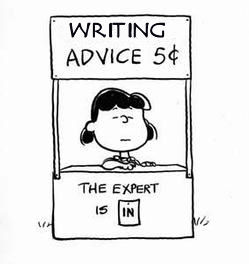A fellow writer over on Twitter was asking for example elevator pitches to show to some of her friends as examples, and since I’ve got, oh, eight or seventeen of them that I’ve been using for years, I threw several of them at her.
An elevator pitch is what you want to have prepared for when you find yourself in an elevator with the high-powered head editor of your favourite publishing house and she says, “Oh, you’re a writer? What are you working on?”
This is not the moment to give a seventeen minute increasingly incoherent babbling response. You want to have this pitch down cold. You want to be able to tell her in a handful of words why this is a story interesting enough to make her invite you to walk down the hall or to the bar with her to tell her a little more about it. You want to have practiced this until you can rattle it off in your sleep.
For example: several years ago I was doing a book signing and talking to a fellow pro writer who was asking me about each of my series, and I had all of these practiced summaries. She looked bemused and impressed and said, “Wow, you’re really good at this.” This is what you want the editor to think when you get your twenty seconds in the elevator!
You want to give her a character, a concept, a question. The question doesn’t have to actually be in the pitch; it just has to be raised in the editor’s mind.
The Walker Papers:
Mechanic Joanne Walker has no use for the supernatural–but it has a use for her. When she’s given the choice between death or becoming a shaman, she chooses the latter—and finds herself fighting old gods in modern Seattle!
This one almost always gets a response of “That’s not much of a choice, is it?!”, to which I respond, “We don’t always get *good* choices!”, and then we’re off and having a conversation about the book/series.
The Negotiator Trilogy:
When New York lawyer Margrit Knight meets the handsome, soft-spoken Alban Korund, she thinks she may have finally found the perfect man—until she discovers he’s a gargoyle, and wanted for murder!
This usually gets a combination response of “Oooh gargoyles!” and “Your idea of a perfect man and mine are very different!”, which, again, opens the door to a conversation.
The Inheritors’ Cycle
Assassin, spy, thief: Belinda Primrose is her queen mother’s most loyal and secret weapon—until her burgeoning witchpower forces her to choose between her mother and the one man who might truly love her…
This isn’t actually my strongest pitch; I actually use “It’s an Elizabethan-era alternate history full of sex, politics, murder and betrayal, in that order,” as my lead-in for this series, and follow it up with the above for a little more detail. I get a lot of “That sounds like my kind of book!” with the sex/politics/murder/betrayal line. “And then its sequel is full of politics, murder, betrayal and sex, in that order!” I say cheerfully. :)
The Worldwalker Duology:
Bespoke tailor Lara Jensen always knows when she’s being lied to—and is thrown into a world of magic when the local weatherman confesses, truthfully, to being a prince of Faery…!
This one often gets a “Wait, what?” kind of response, which, again, leads to conversation. “How come she knows when she’s being lied to? Why is the weatherman an elf? What’s he doing there?” Etc. :)
It’s equally important that you be able to answer any follow-up questions with equal confidence, although I confess to having never gotten as polished at that as I am at the pitches. OTOH, an editor isn’t looking for the entirety of your book when she says “Okay, tell me some more.”
She wants to know how you’re going to deal with a world that has vampires when vampires are so over-saturated (actual question I was asked by Betsy Mitchell regarding the Old Races when I pitched them to her. My answer (was not quite this polished, but was): “I think one of the great things about the huge variety of vampires we’ve seen over the past several years is that it gives a writer a lot of room to do what she wants with them. My vampires are fine with sunlight and are very fast, but what makes them monsters is a combination of their apparent interest in and yet total disregard for humans.”).
She wants to know why Lara always knows when she’s being lied to (“It’s not a curse; there’s a faint chance she might have fairy blood herself, but mostly it’s that this is a fairy tale, and people in fairy tales have strange and unexplained attributes.”)
She wants to know why Belinda is so loyal to a mother who won’t acknowledge her. (“Because she’s been raised/indoctrinated to *be* that way, and also because of [spoiler that I would give an editor but not readers].”) Editors want to know you have the answers to the questions that are raised by your elevator pitch; that, in my experience, is *far* more important than being able to spend the next two or five or fifteen minutes explaining the intimate details of your plot. If you can answer the questions raised, you’ve probably got a pretty good handle on the story, and that’s what editors want to be confident of.
Herein ends the lesson, as best I can give it, on Elevator Pitches And You. :)
